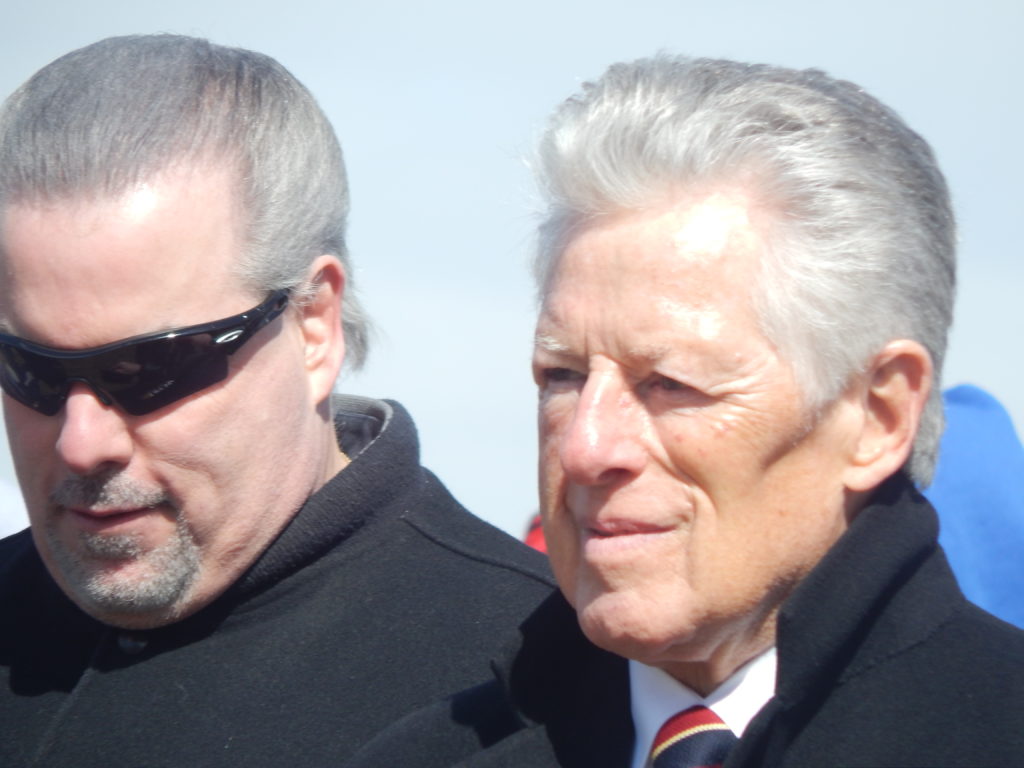Former Governor Jim Florio - A Public Servant Right to the End

Sadly, former Governor Jim Florio, one of New Jersey’s most prominent and influential public servants, died September 25 at the age of 85.
He tried three times to become governor, first losing the primary of 1977 to Governor Brendan Byrne.
In the closest gubernatorial election in modern New Jersey history, Florio then lost to Governor Thomas H. Kean by a mere 1,750 votes in the election of 1981.
He finally won the governorship in 1989 by a decisive margin over Congressman Jim Courter.
Florio was the 49th governor of New Jersey, serving from 1990-1994. After serving in the U.S. Navy and graduating from Trenton State College (now College of New Jersey), Florio, an attorney, went on to serve in the Assembly (1970-75) and in Congress (1975-1990).
Before serving as governor, as an Assemblyman, and the people of the First Congressional district, his experience as a boxer in his younger years seems to have greatly shaped his character.
How else to explain the fortitude and grit displayed by Florio in rebounding from what must have been a devastating defeat in 1981 to run and win the governorship in 1989.
Florio’s story is an American story. From humble beginnings growing up in the hard-scrabble Flatbush section of Brooklyn, N.Y., through his days as a boxer, his college education at Trenton State College, and his legal training at Rutgers/Camden Law School, his life and career is a testament to the American spirit.
Political consultant Barry Brendel probably does not remember a conversation we had prior to the 1981 election. By a chance meeting we found ourselves chatting at the Wooden Nickle (now Arthurs Steak House), a restaurant in North Brunswick, N.J.
He learned about my very minor role helping Ken Merin, manager of the Kean campaign. I found out about his background as Democratic political consultant.
Despite our political differences, and because of them, we had plenty to talk about, most specifically the gubernatorial campaign.
At one point, the conversation turned to the issue of the personal styles of the candidates, predicting how each would fair in the upcoming debate and ultimately the election.
My comments were along the following lines: that Kean, despite his patrician-like demeanor, ironically had a natural ability to connect with ordinary voters while Florio, despite his blue-collar background, had an academic, technocratic style.
With passing years, I have reassessed my thoughts on Florio’s style of speaking, not so much about the political repercussions of it but what it said of the personality and character of the man.
It seems as if Governor Florio had to work exceedingly hard to accomplish what he did; ultimately to rise to the highest office in the State. His manner of speaking reflected his determination to better himself and his place in society, to move vertically up the social ladder, acquiring for himself a strong vocabulary and understanding of important governmental concepts.
A true regret is in not having the opportunity to interview him for the Commission’s “History of the Commission Project.” We were in the process of arranging an interview but unfortunately were unable to do so prior to his unexpected death.
If the interview would have taken place there are a number of questions that would have been asked. Among them would have been the following:
1) Where did you get the intestinal fortitude to remain in politics following the 1981 defeat and the drive to run and win in 1989?
2) Do you regret proposing tax increases to fill a budget gap in your first year in office (as a man of principle his answer would be “no regrets”)?
3) What was the impetus for your 1992 lobby reform proposals?
4) How important was it to sign the bill incorporating the 1993 Rosenthal reforms imposing contribution limits, requiring PAC registration and creating leadership PACs?
5) How significant was the Rosenthal proposal to strengthen a then weak party system?
6) Why was it important to support the end to cash for street money to be replaced by checks? and,
7) How important was the gubernatorial public financing program to your efforts to become governor?
There would have been other questions posed but the above would have been the most significant.
The 1981 gubernatorial election, its closeness, holds significant personal resonance for me and will always stand out as special.
In many ways the 1989 election, in other ways, is special as well because it tells a tale of a man who would not give up the quest to be the best public servant God allowed him to be.
Among Florio’s accomplishments as governor were closing a $2 billion dollar budget gap, reforming auto insurance, enacting a statewide ban on semi-automatic weapons, and reform of New Jersey’s state school funding program.
As a member of Congress, Florio was known for his concern for the environment, most notably in sponsoring a federal law to clean up polluted sites.
However, in spite of all these achievements, it is my suspicion that if he were able to tell us, he would say that his crowning achievement was in marrying his wife Lucinda, who herself served as a wonderful First Lady of the State, a steady partner to him, all the while bringing her years of experience as a public-school teacher to her important role in his Administration.
Jeff Brindle is the Executive Director of the New Jersey Election Law Enforcement Commission.
The opinions presented here are his own and not necessarily those of the Commission.





